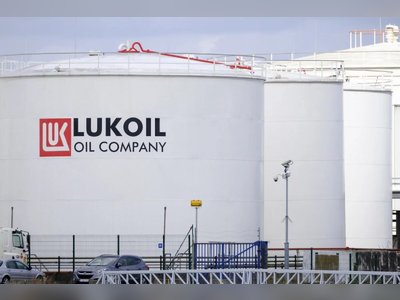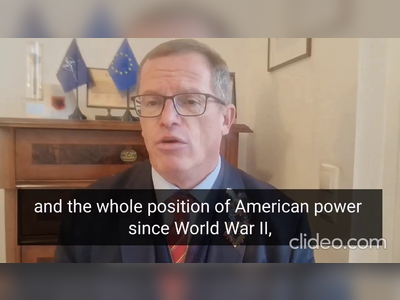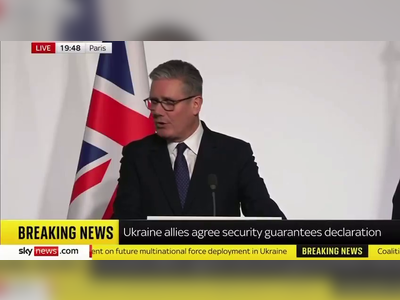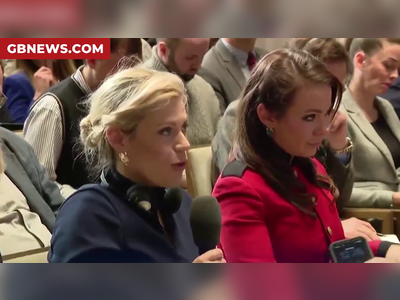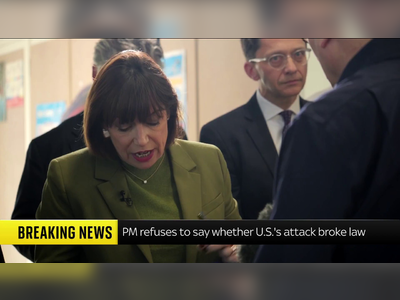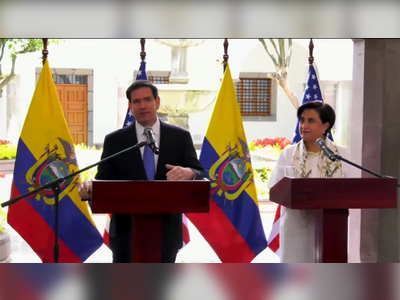
Germany’s Nuclear Energy Debate and Recent Developments in Europe
Friedrich Merz backtracks on nuclear energy revival as international collaborations explore small modular reactors.
Germany is witnessing a significant shift in its nuclear energy stance as Friedrich Merz, expected to be the country's next chancellor, retracts previous plans to reactivate nuclear power.
After the February elections, Merz, leader of the CDU, remarked that the revival of nuclear reactors in Germany is improbable, stating that dismantling and decontamination efforts have progressed beyond reversal.
Germany shut down its final three nuclear power plants in April 2023, a decision initially enforced by then-chancellor Angela Merkel in 2011. Despite recognizing the permanence of Germany's nuclear phase-out, Merz described the exit strategy as a 'grave strategic mistake'.
The CDU manifesto had suggested re-evaluating the potential to restart power plants that recently ceased operations and expressed interest in advanced nuclear technologies, including small modular reactors.
However, no update on the party's stance post-Merz's comments has been provided.
The phaseout of nuclear energy in Germany has not been without controversy, particularly following the energy crisis of 2022 which saw Chancellor Olaf Scholz extending the operation of the remaining nuclear stations into early 2023. The decision stirred political debates, leading to accusations against Economy Minister Robert Habeck of prioritizing ideology over energy security.
Investigations and expert testimonials concluded that restarting existing nuclear facilities was unrealistic and that constructing new plants would be costly and time-consuming.
Elsewhere in Europe, technological advances in nuclear energy continue.
Italian companies Edison and ENEA, along with EDF, have signed a memorandum aimed at exploring small modular reactors (SMRs) for industrial use.
This collaboration will delve into safety systems, heat exchange technologies, and co-generation of electricity and heat.
The partnership underscores Italy's commitment to nuclear innovation and its strategic positioning in the European nuclear landscape.
The development of new nuclear technologies in Italy, supported by strategic alliances with international organizations and Italian research establishments, signifies the country’s proactive approach towards integrating small nuclear reactors into its energy mix.
This initiative targets enhancing industrial competitiveness and achieving decarbonization goals.
Prime Minister Meloni has highlighted the pivotal role of technological development, including nuclear fusion, in transforming energy accessibility and sustainability globally.
After the February elections, Merz, leader of the CDU, remarked that the revival of nuclear reactors in Germany is improbable, stating that dismantling and decontamination efforts have progressed beyond reversal.
Germany shut down its final three nuclear power plants in April 2023, a decision initially enforced by then-chancellor Angela Merkel in 2011. Despite recognizing the permanence of Germany's nuclear phase-out, Merz described the exit strategy as a 'grave strategic mistake'.
The CDU manifesto had suggested re-evaluating the potential to restart power plants that recently ceased operations and expressed interest in advanced nuclear technologies, including small modular reactors.
However, no update on the party's stance post-Merz's comments has been provided.
The phaseout of nuclear energy in Germany has not been without controversy, particularly following the energy crisis of 2022 which saw Chancellor Olaf Scholz extending the operation of the remaining nuclear stations into early 2023. The decision stirred political debates, leading to accusations against Economy Minister Robert Habeck of prioritizing ideology over energy security.
Investigations and expert testimonials concluded that restarting existing nuclear facilities was unrealistic and that constructing new plants would be costly and time-consuming.
Elsewhere in Europe, technological advances in nuclear energy continue.
Italian companies Edison and ENEA, along with EDF, have signed a memorandum aimed at exploring small modular reactors (SMRs) for industrial use.
This collaboration will delve into safety systems, heat exchange technologies, and co-generation of electricity and heat.
The partnership underscores Italy's commitment to nuclear innovation and its strategic positioning in the European nuclear landscape.
The development of new nuclear technologies in Italy, supported by strategic alliances with international organizations and Italian research establishments, signifies the country’s proactive approach towards integrating small nuclear reactors into its energy mix.
This initiative targets enhancing industrial competitiveness and achieving decarbonization goals.
Prime Minister Meloni has highlighted the pivotal role of technological development, including nuclear fusion, in transforming energy accessibility and sustainability globally.
Translation:
Translated by AI
AI Disclaimer: An advanced artificial intelligence (AI) system generated the content of this page on its own. This innovative technology conducts extensive research from a variety of reliable sources, performs rigorous fact-checking and verification, cleans up and balances biased or manipulated content, and presents a minimal factual summary that is just enough yet essential for you to function as an informed and educated citizen. Please keep in mind, however, that this system is an evolving technology, and as a result, the article may contain accidental inaccuracies or errors. We urge you to help us improve our site by reporting any inaccuracies you find using the "Contact Us" link at the bottom of this page. Your helpful feedback helps us improve our system and deliver more precise content. When you find an article of interest here, please look for the full and extensive coverage of this topic in traditional news sources, as they are written by professional journalists that we try to support, not replace. We appreciate your understanding and assistance.


